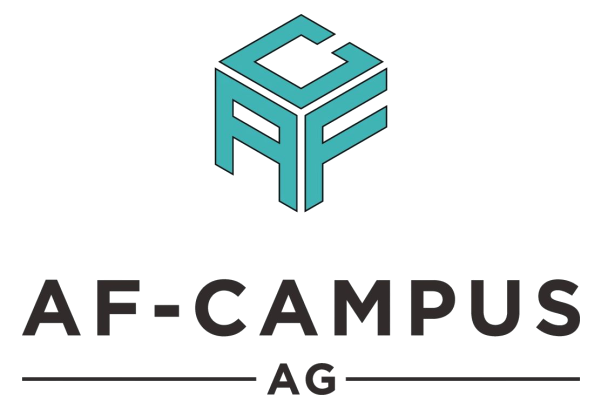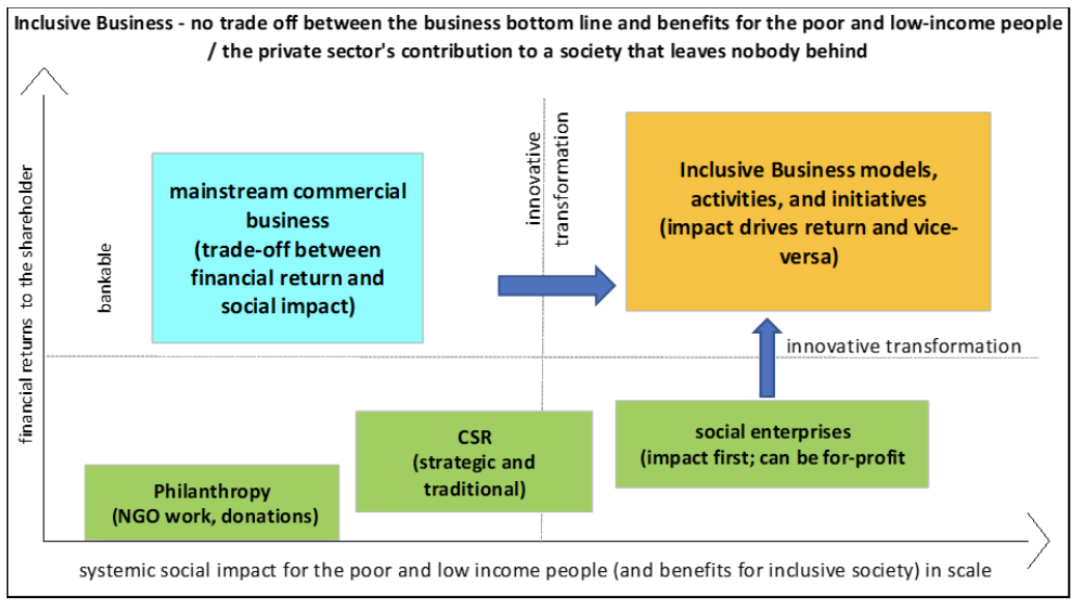
Definition and Characteristics
Inclusive Business is a terminology in the new business literature. Inclusive Business (IB) are commercially viable companies of the private sector that provide – in scale – systemic and innovative solutions to the relevant problems of the poor and low-income people in developing and emerging economies.
Where are the IBs?
Inclusive Businesses are mostly found in developing and emerging economies, where the market of the poor is big but less served, offering high potential for an innovative private sector to engage in a meaningful and non-exploitative way.
In high-income economies (like the OECD world) there are only a few IB models. Here nearly all companies also serve the lower-income markets. Social business in these economies focuses on niche markets.
Worldwide, since the 2010s there is a strong trend for establishing IB models and for investing in IB companies through impact investing. For example, the International FinanceCorporation (IFC, the private sector arm of the World Bank) has increased its IB investments to meanwhile 15% of its deals. Similarly, other bi-and multilateral development banks as well as commercial finance institutions (e.g. Credit Suisse, J.P. Morgan, impact funds) establish new financing instruments for IB. The investment side often claims that “… there is no shortage in money for IB but problems of finding good deals…”.
For developing and emerging economies IB models are particularly relevant because they help the poor (that is their purpose), the business making money (obviously), and the government addressing social needs with flexible approaches that work for which the state if often less well equipped. Many countries in Asia, therefore, welcome the emergence of companies and have prepared specific promotion programs. 6 To this end, ASEAN has recently developed an Inclusive Business Policy Guide recommending economies in southeast Asia to set up IB promotion strategies, policies, and programs.
Why is AF-Campus an IB?
Many companies deal with the poor or provide services to them. Engaging the poor however does not make such firms automatically to be an Inclusive Business company. IB characteristics require commercial viability, innovative solutions, targeting the poor, scale of services or income opportunities created, sustainability, and contribution to systemic change.
AF-Campus is a good example of an IB model in the technical training sector. It offers systemic solutions in scale to generate in a sustainable way good income opportunities. It offers that to the poor, the Philippines society (through including the Azubi component), and to the German (and Swiss and Austrian) people who pay for the services and have a big and major benefit. AF-Campus also introduced many innovations to reduce the risks of the poor in such training courses. Over 10 years It arranges 25.000 people o find well-paid jobs in good working conditions, and has with this large number a systemic impact.

